- (615) 595-6111
- 615-595-9514
- 216 3rd Ave N, Franklin, TN 37064
- office@downtownfranklinfamilydentistry.com
- (615) 595-6111
- 615-595-9514
- 216 3rd Ave N, Franklin, TN 37064
- office@downtownfranklinfamilydentistry.com
Gum disease, also known as gingivitis and periodontal disease, is a condition that affects the gums and the surrounding teeth. In fact, gum disease is a prevalent condition that is one of the most common but often overlooked problems dental patients face. Let’s explore what it is, why addressing it is important, and how you can prevent it.
Gum disease is an inflammation of the gums that can lead to serious complications if left untreated. It is primarily caused by plaque, a sticky, colorless film of bacteria that forms on our teeth. When plaque isn’t removed through daily brushing and flossing, it hardens and turns into tartar, which can only be removed by a dentist or dental hygienist. Bacteria in plaque and tarter build-up can then infect the soft tissue and cause inflammation. Eventually, this results in periodontal disease that impacts the gum tissue and bone that support your teeth. It can also have a significant negative impact on overall health by increasing the risk of systemic conditions such as heart disease, diabetes, and respiratory diseases due to the chronic inflammation and bacteria associated with the condition.
This is the earliest stage of gum disease, an inflammation of the gums caused by plaque buildup at the gumline. Symptoms include having red, swollen, and/or tender gums that tend to bleed easily, especially when brushing and flossing. Another sign is persistent bad breath or a bad taste in the mouth, despite maintaining good oral hygiene. Gingivitis is reversible with professional treatment and good oral home care.
Untreated gingivitis can advance to periodontitis. At this stage, the supporting bone and fibers that hold your teeth in place are damaged. The gums begin pulling away from your teeth to form a pocket below the gumline, which traps food and plaque. Teeth might also begin to feel loose, and there might be a change in the way teeth fit together when biting down. Proper dental treatment and improved home care can usually help prevent further damage.
This is the final stage of gum disease, where the fibers and bone supporting your teeth are destroyed, which can cause your teeth to shift or loosen. In advanced periodontitis, these symptoms worsen, and you might experience a severe toothache, pus between your teeth and gums, and even tooth loss due to the destruction of the supporting bone structure. Aggressive treatment is necessary to save the teeth.
The good news is that periodontal disease is preventable. Maintaining good oral hygiene practices is key to preventing this condition. This includes brushing your teeth twice a day, flossing daily, and using an antiseptic mouthwash. In addition to this, it is crucial to visit your dentist for regular cleanings and checkups to detect any signs of periodontal disease early on. If you are at high risk for developing periodontal disease, your dentist may recommend more frequent cleanings and other preventive measures.
Here are the best steps you can take for prevention:
Brush Regularly: Brush your teeth twice a day using a fluoride toothpaste. This helps to remove the plaque that causes gum disease.
Floss Daily: Flossing is essential to remove plaque and food particles from between your teeth and along the gum line where your toothbrush can’t reach. Using a Waterpik is a great alternative to flossing.
Regular Dental Check-ups: Visit your dentist at least twice a year for a check-up and professional cleaning to remove plaque and calculus in places your toothbrush and floss have missed.
Quit Smoking: Smoking is strongly associated with the onset of gum disease. Quitting smoking can significantly reduce the risk of developing gum disease.
Eat a Balanced Diet: A balanced diet provides the necessary nutrients (vitamins A and C, in particular) required for your immune system to fight off infection.
If gum disease is not detected and treated early on, it can progress to the more severe stages. Treatment for periodontitis may involve scaling and root planing to remove plaque, tartar, and infected tissue, which often requires injections of anesthetic. In severe cases, surgery may be required to repair gum tissue and restore the health of the gums.
Gum disease is a common dental problem that can lead to serious complications if left untreated. However, by maintaining good oral hygiene practices and visiting your dentist regularly, you can prevent this condition from occurring. If you are experiencing any symptoms of gum disease, it is important to seek treatment right away to avoid further damage to your teeth and gums.
Maintaining healthy gums is crucial for your overall health. Early detection and treatment of gum disease can prevent tooth loss and protect your overall health. At Downtown Franklin Family Dentistry, we are committed to helping you maintain a healthy, radiant smile. That’s why our team of highly trained professionals is committed to providing personalized care and tailored treatment plans for each patient. We believe that by educating our patients about the importance of good oral hygiene, plus about the available preventive measures and treatment options, we can help them maintain healthy teeth and gums for a lifetime. If you have any concerns about your gum health, please contact us.
The idea of getting dentures or partial dentures can be daunting and...
Read MoreAre you interested in providing affordable dental care for you and your...
Read MoreSeptember is Gum Care Month, a time dedicated to highlighting the importance...
Read MoreCheck out our affordable membership plans from Downtown Franklin Family Dentistry.
Read MoreMaintain those smiles all year long, schedule a back-to-school appointment now.
Read MoreWe have exciting news to share with our valued patients at Downtown...
Read MoreChoosing SureSmile Clear Aligners is an investment in your long-term oral health...
Read MoreDental implants are a state-of-the-art solution for replacing missing teeth and restoring...
Read MoreAt Downtown Franklin Family Dentistry, your safety and well-being are paramount in...
Read MoreMaintaining good oral hygiene goes beyond just brushing and flossing at home....
Read MoreAs we age, we often focus on maintaining our youthful appearance, but...
Read MoreApril is Oral Cancer Awareness Month, a time dedicated to highlighting a...
Read MoreAt Downtown Franklin Family Dentistry, we understand dental procedures can sometimes feel...
Read MoreHave you ever admired someone’s flawless smile and wondered how they achieved...
Read MoreAre you tired of wincing in pain every time you indulge in...
Read More

